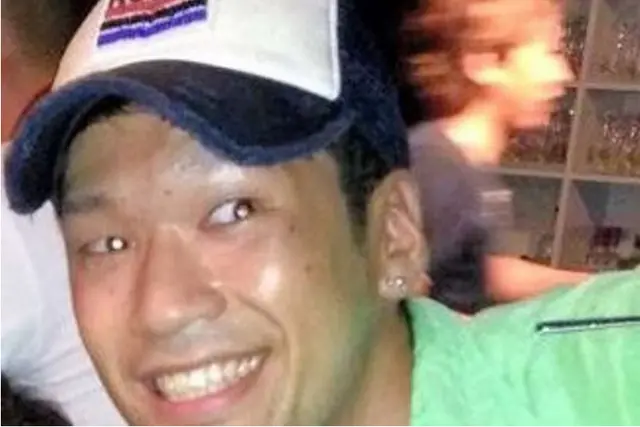Dear Lower House Speaker Tadamori Oshima,
Thank you very much for reading this letter. I can wipe out a total of 470 disabled individuals.
I am fully aware that my remark is eccentric. However, thinking about the tired faces of guardians, the dull eyes of caregivers working at the facility, I am not able to contain myself, and so I decided to take action today for the sake of Japan and the world.
My reasoning is that I may be able to revitalise the world economy and I thought it may be possible to prevent World War III.
This is the letter from Satoshi Uematsu, the young Japanese man who went on a stabbing rampage, killing 19 people Tuesday at a facility for the mentally disabled where he had been fired. Months earlier, he reportedly gave a letter to Parliament outlining the bloody plan.
The suspect in a deadly stabbing rampage at a home for the disabled here reportedly threatened to carry out an attack in a letter to the Lower House speaker five months ago.
After being investigated by police, Satoshi Uematsu, 26, who formerly worked at the facility in Sagamihara in the northwestern part of Kanagawa Prefecture, was hospitalized for less than two weeks in late February before being released.
Uematsu admitted returning early on July 26 to the Tsukui Yamayurien facility, where he worked from December 2012 to February this year, and going on the rampage.
Nineteen people were killed and 26 others injured, many of them seriously.
According to the National Police Agency, the stabbing rampage is the worst such incident since 1989 in terms of the death toll.
The 19 people killed were nine men between the ages of 41 and 67 and 10 women between the ages of 19 and 70.
The man, identified as Uematsu, later turned himself in to a police station in Sagamihara and was immediately arrested.
“I hope that disabled people will disappear (from this world),” Uematsu told police.
According to Kanagawa prefectural police, an employee of the facility called police at around 2:40 a.m. saying, “Something serious has taken place.”
Police said Uematsu broke into the facility at around 2:10 a.m. and stabbed residents there in rapid succession.
At about 3 a.m., he surrendered himself to the local Tsukui Police Station after driving there by car. He was wearing a black T-shirt and black trousers, and three knives were found in his bag. At least one was stained with blood.
A window on the first floor of the facility had been broken, and a hammer was found nearby. Police received another call at around 2:45 a.m., which said, “A man broke into our facility.”
The caller also said, “We (staff members) were bound, and during that time, people were stabbed.”
When the incident occurred, nine staffers were working the night shift, said officials of the Kanagawa prefectural government.
According to the Hachioji Medical Center of Tokyo Medical University, which admitted four of the injured, all four suffered stab wounds to the upper half of their bodies, particularly around their necks, and are unconscious.
The facility is located near the prefectural border with Yamanashi Prefecture and is about two kilometers east of Sagamiko Station on the JR Chuo Line.
According to the Kanagawa prefectural government, a total of 149 people with intellectual disabilities were living in the facility on a long-term basis as of the end of April. Their ages ranged from the teens to the 70s.
The residents are divided into groups, each of which consists of 20 people, and each group is living in an area called the “home.”
At night, at least two staff members of the facility are assigned to each two-story building. The front gate of the facility and entrances to the buildings in which residents are living are all locked.
The facility was set up by the prefectural government in 1964 to support disabled people. The prefectural government turned over operation of the facility to social welfare organization Kanagawa Kyodokai in 2005.
According to sources related to the Lower House, Uematsu took a letter to the official residence of the Lower House speaker in Tokyo’s Chiyoda Ward on Feb. 15.
According to police investigators, the letter listed several facilities, including Tsukui Yamayurien, and threatened that some residents would be killed. The letter also demanded that the Diet pass a law promoting the euthanasia of disabled people.
The Lower House reported Uematsu’s letter to the Metropolitan Police Department in Tokyo.
According to the city government of Sagamihara, where Uematsu’s house is located, he told other staffers of Tsukui Yamayurien on Feb. 18 this year, “I will undertake the mass murder of heavily disabled people at any time if I receive an order from the central government.”
On Feb. 19, the Tsukui Police Station, which had been notified about the threat from the facility, questioned Uematsu. At that time, he made the same threat.
Police reported the case to the Sagamihara city government on the basis of the Mental Health Law. The city government forced Uematsu to submit to mandatory hospitalization after undergoing a medical examination.
On Feb. 20, the hospital detected the presence of marijuana in Uematsu's blood and urine tests.
The hospital discharged Uematsu on March 2, saying that his symptoms had eased. At that time, he submitted a report to the hospital, which said, “I will live with my family after leaving the hospital."
(Kyodo)
 简体中文
简体中文

